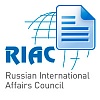Ukraine Leverages Turmoil in Central Europe
In
Login if you are already registered
(no votes) |
(0 votes) |
Authors:
Alexander Th. Drivas
PhD Candidate in International Affairs & East Mediterranean Studies, (University of Peloponnese) Project Coordinator of “Greece, Cyprus, Egypt & Israel: Opportunities and Restrictions of a Mediterranean Coalition” at the International Relations Institute of Athens
Michalis Diakantonis
Economist and International Relations Analyst, Project Coordinator of “Greece, Cyprus, Egypt & Israel: Opportunities and Restrictions of a Mediterranean Coalition” at the International Relations Institute of Athens
Summary
In this short article, we analyze a fictional scenario about the evolution of the Ukrainian issue that includes brinkmanship policies among different states. According to this case, Germany and Russia could not afford a type of frozen conflict because both of them face the Ukrainian issue as a zero-sum game. The lack of nuclear weaponry balance opens a window of opportunity for Russia to project the ultimate threat of violence towards Germany. However, there are a lot of variables that drive this conflict into a brinkmanship situation between Russia and Germany.
Drivers ofan Emerging Conflict
The frozen aspect of the Ukrainian crisis cannot be sustained. The zero-sum aspect of the Ukrainian issue evolves to the following sequence.
1. Firstly, the economic sanctions against Russia force Moscow to sustain on its efforts to hold its influence on the whole Ukraine. Putin knows that a possible loss in Ukraine changes the Russian strategy towards Europe, Central Asia and Middle East.
2. Secondly, the Minsk’s Agreement is fragile. Neither pro-Western people, nor pro-Russians face this agreement as a win-win situation.
3. Germany’s Ministry for Foreign Affairs has already announced that a new “White Bible” of Germany’s strategy will have been concluded by the end of 2016. This new doctrine refers to the Russian aggression.
4. The Berlin’s defense is based on the “EU’s free ride of NATO”. Russia could pose a nuclear threat to Germany due to Germany’s lack of nuclear weaponry which is based on WWII restrictions.
5. Baltic States are fully depended on Russian energy supplying (100%). On the contrary, Poland holds a depending percentage on Russian energy of 60%. Moreover, Polish territory has all the appropriate requirements to reinforce German supplying effort towards pro-Western Ukrainians.
6. According to this scenario, Germany decides to transfer weaponry and appropriate supplies into the Western Ukraine so the pro-Western Ukrainians sustain their effort.
7. Russia perceives this German support as a casus belli signal and cooperates with Belarus in order to control the Southern borders of Poland and to boycott the German supplying effort. Russian nuclear advantage over Germany, (as a threat) defines the crisis. After the escalation of crisis, the US tries to triangulate the two sides.
8. The US and Russia come to a new agreement in which Russia recognizes a restricted autonomy of Western Ukraine but none type of independence. The brinkmanship policies between Germany and Russia comes to an end which is similar with the Ukrainian status quo ante (before the expansion of the crisis of January of 2014).
Conclusion
The Russian economy has to face a lot of problems and challenges. The Ukrainian issue is still the most important geopolitical challenge for Russia. On the other side, Germany seeks for a lower dependence on Russian natural gas and at the same time, to expand the EU’s market. In 2020, Ukraine will continue to be closer to a failed state situation but Russia will still define the Ukrainian policy. The NATO’s benefit will be that Russia will stop to involve in Middle Eastern issues.
The possible adoption of a more aggressive Russian policy towards Ukraine could bring a brinkmanship policy by the western side. The weak side of a western plan of intervention is the Black Sea. The annexation of Crimea offers a naval advantage of defence to Russia. Moreover, the close relations between Russia and Turkey make Moscow to feel more comfortable concerning its southern borders. Extracting those arguments, we should await a clash in continental Europe. Polish geography includes all the appropriate requirements to deter a possible Russian use of the Belarus advantage and of course is necessary to control a war conflict in the Western Ukraine (pro-Western part of Ukraine). That means that Poland could be the central stage in this future clash between the West (mainly Germany) and Russia.
Photo credit: nbcnews.com
(no votes) |
(0 votes) |




